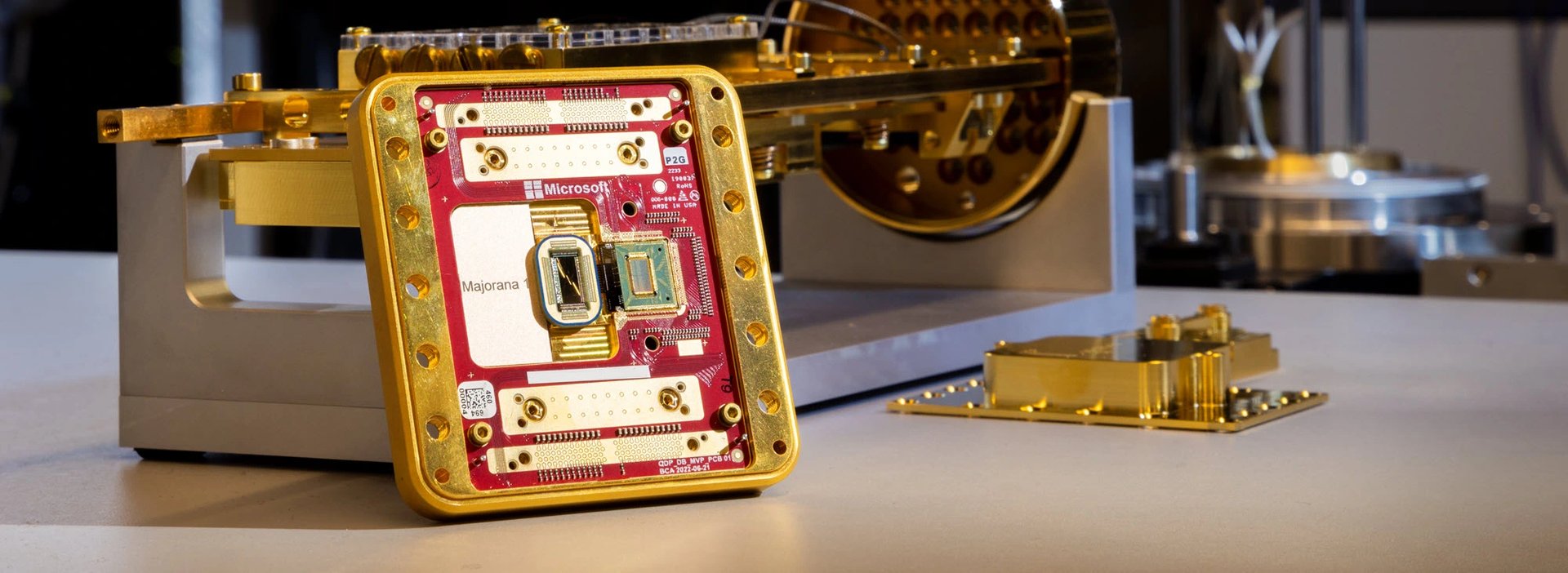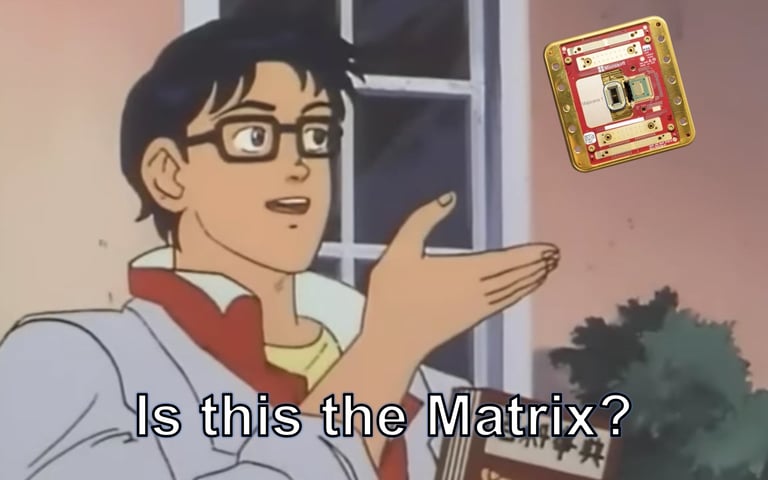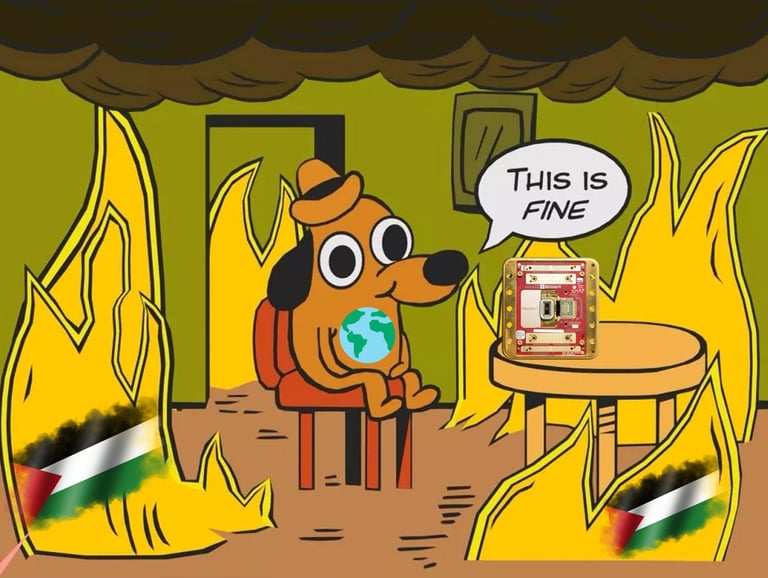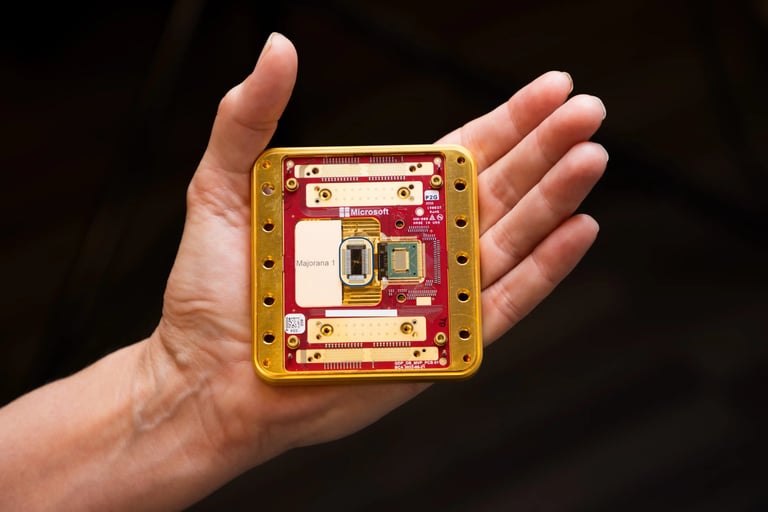
The new Microsoft quantum chip can predict earthquakes... but not your love life decisions
What the Majorana chip reveals about the true future of quantum computing (and how it could cure cancer, run GTA 6, or calculate your birth chart in seconds and tell you why you're still dating an Aquarius).
Edú Saldaña
4/2/20254 min read
The quantum monster arrives
While half the planet is fighting over who has the best ChatGPT prompt, Microsoft pulled a scientific bomb out of its sleeve: a quantum chip based on a new state of matter. And no, it’s not solid, liquid, or gas. It’s... topological. (Take that, periodic table.)
This chip is called Majorana 1, and if what Microsoft says is true, it could kick the butt of all the planet’s supercomputers at once. Literally. As your gamer cousin would say: "bro, this thing runs GTA 6 in 16K."


How the hell does this work?
First things first: classical computers work with bits (0 or 1). Quantum ones use qubits, which can be 0 and 1 at the same time. Like flipping a coin and having it land on heads and tails at once. Don’t worry, you don’t need LSD to understand this.
What makes a quantum chip so special is its ability to take advantage of the laws of quantum mechanics, especially superposition and entanglement.
Superposition means a qubit can represent multiple states simultaneously, allowing for many calculations at once. Entanglement is like cosmic twin qubits: what happens to one instantly affects the other, no matter the distance (Yes, it sounds like the 3-body problem).
Here’s the catch: regular qubits are so unstable, they’re basically in a toxic relationship with your ex. Any vibration, light, or sneeze ruins them.
That’s why Microsoft’s breakthrough is so wild: their topological qubits keep working even with interference. They’re like the Messi of qubits: consistent, elegant, and nobody knows how they do it.

This means the Majorana 1 could solve extremely complex problems in seconds—problems that would take classical computers centuries. And since it’s based on a new state of matter, its topological qubits are incredibly stable. They don’t collapse easily like normal qubits do, opening the door to real, functional quantum computing, not just lab demos.
What is this useful for? Potential applications
🧬 Human health
Development of personalized medicine based on each person’s DNA.
Precise simulation of biochemical reactions to create drugs without animal testing.
Diagnosis of complex diseases like cancer and Alzheimer’s.
🌱 Environment and sustainability
Capturing and converting CO₂ into useful materials.
Creation of self-regenerating materials that can repair themselves.
Simulation of complex ecosystems to prevent ecological collapse.
🧠 Artificial intelligence and computing
Training cutting-edge AI models in hours instead of weeks.
Optimization of algorithms for robotics, computer vision, and natural language processing.
Major improvements in recommendation, logistics, and finance systems.
🐾 Fauna and flora
Simulation of evolutionary processes to protect endangered species.
Plant genome modeling to improve crop resilience to extreme climates.
Prediction of animal migrations and biodiversity shifts due to climate change.
🌋 Nature and extreme physics
Accurate prediction of earthquakes, tsunamis, and volcanic eruptions.
Study of matter under extreme conditions, like in a planet’s core.
Deeper understanding of black holes and the origin of the universe.
The future of science, the past of humanity
While Microsoft is busy playing God with atoms, the real world keeps dropping bombs. Literally. The paradox is brutal: science creates almost magical tools while we remain morally stagnant. We’re building computers that can predict earthquakes, yet we can’t prevent massacres like those in Gaza.
Does it make sense that we are so technologically advanced and so morally backward? We’re teaching computers to recognize cosmic patterns, but we can’t seem to recognize the basic pattern of not killing innocent people. We urgently need a version 1.0 ethics algorithm.
We live in a time when technology advances by leaps and bounds, but our moral compass seems to be stuck in airplane mode. It's as if we had updated the software of our intellectual evolution and forgot to update the firmware of our conscience.
I recommend the stand-up routine by Israeli comedian Gianmarco Soresi titled "The Redefining of Antisemitism." In it, Soresi cleverly and satirically explores how perceptions of antisemitism have changed in today’s society. You can watch it here:



So now what?
This breakthrough is as revolutionary as the first transistor. And just like back then, no one knew it would change the world. Today, we're in the same place.
But this time, we have an advantage: we can choose how to use it. We can choose for quantum computing to not only make a few people richer but to actually solve real problems: health, climate, energy, equity.
🧍♂️🧍♀️ At an individual level:
Inform and share: Learn about these technologies and spread the word in your community. Collective awareness starts with a conversation.
Support ethical science: From responsible tech consumption to backing scientific projects with a social impact.
Ask yourself: How can I use my voice, my networks, my profession to drive positive change with science as an ally?
🌍 At a societal level:
Demand transparency and regulation: Quantum development must serve humanity, not just the market.
Encourage public-private partnerships for the social applications of quantum computing.
Promote science education from an early age to form citizens who can understand and decide on these advances.
The question isn't whether this technology will change the world. It's whether we will be mature enough to deserve it.


What would you do if you had a computer millions of times more powerful than any other? Would you solve climate change or run Skyrim with 500 mods?
If this article made you think (or at least laugh), share it with your friends. Maybe we can’t change the world with memes… but it’s a start.
Kunan Project
We use humor to break down complex issues, connect communities, and build a more inclusive future
© 2025. All rights reserved.
info@kunanproject.com
